hankyoreh
Links to other country sites 다른 나라 사이트 링크
[Interview] Japanese author fights for Korean victims of forced labor
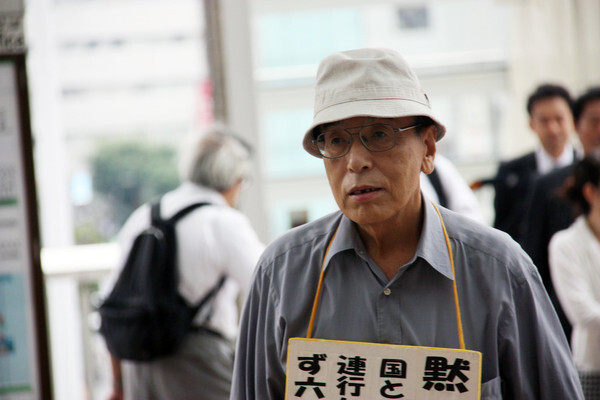
Shuhei Yamakawa was an ordinary employee in Japan’s housing industry when he went on a life-changing golfing trip to Jeju Island in 1992. It was on that trip that he met Kim Jung-gon (now deceased), a family member of a Korean who died while doing forced labor in the euphemistically named Korean Women’s Volunteer Labor Corps. This unplanned meeting, the 85-year-old Yamakawa said on Apr. 9, “was the turning point in my life.”
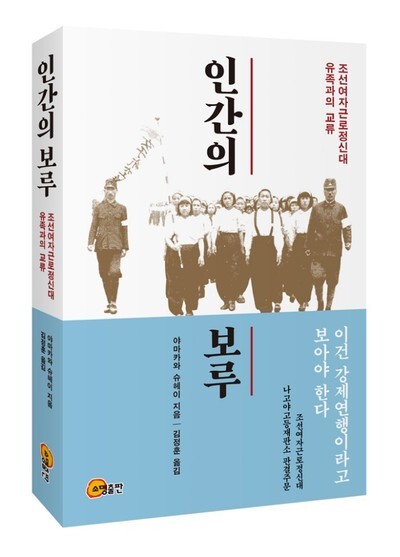
Yamakawa is the author of a memoir titled “Stronghold of Humanity: My Interactions with the Bereaved Families of Members of the Korean Women’s Volunteer Labor Corps.” The book has recently been translated into the Korean and published by Somyung Press. “As a Japanese, I was so ignorant of the history of forced labor. I feel it’s my mission as a writer to leave a record of that,” Yamakawa said.
Kim’s younger sister was conscripted to work at an airplane factory in Nagoya in May 1944. That December, she was one of six Korean teenage women who lost their lives in the Tonankai Earthquake. A friend of Kim’s sister, who had been working at the same factory, overcame the odds to return home, and the two eventually got married. (Kim’s wife passed away in 2001.) Kim introduced Yamakawa to Makoto Takahashi, 77, the co-president of a Nagoya group organized to help former members of the labor corps file lawsuits against Mitsubishi.
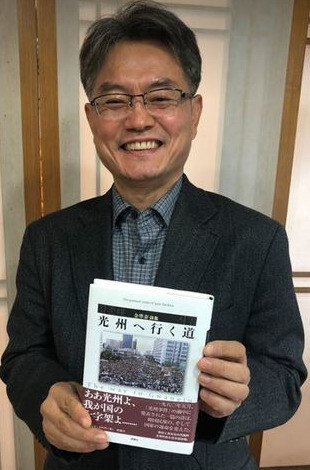
Takahashi learned about the history of Koreans being conscripted for labor while he was working as a high school history teacher in 1988. Later, he played an instrumental role in setting up a memorial to honor the six Korean teenage girls who were killed in the Tonankai Earthquake. After that, he set up the Nagoya support group, which has been holding demonstrations in front of the Tokyo headquarters of Mitsubishi Heavy Industries every Friday since July 2007, demanding the company apologize for the forced labor and provide compensation to the members of the labor corps. Yamakawa joined the group and became a regular member of the Friday demonstrations, not missing a single one between July 2007 and July 2010.
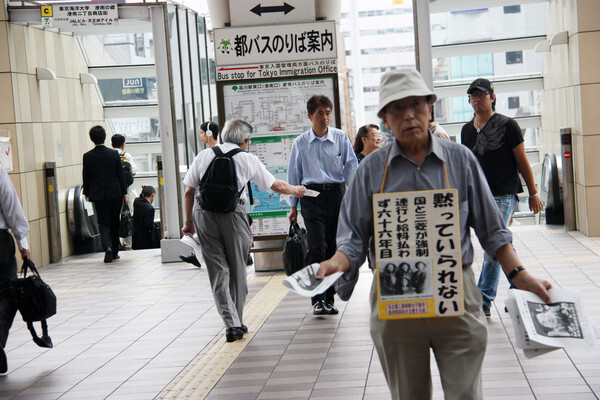
In his book, Yamakawa provides a detailed account of how Takahashi and other Japanese became interested in the issue of forced labor. Other episodes described in the book are the installation of the memorial for the earthquake victims, the establishment of the Nagoya support group, and the damages lawsuits that worked its way through the Japanese court system between 1999 and 2008.
The original Japanese version of Yamakawa’s book was published the year after Japan’s Supreme Court ruled against the former members of the labor corps in May 2007. The Korean-language translation was published through the diligent efforts of Kim Jeong-hun, a professor at Chunnam Techno University.
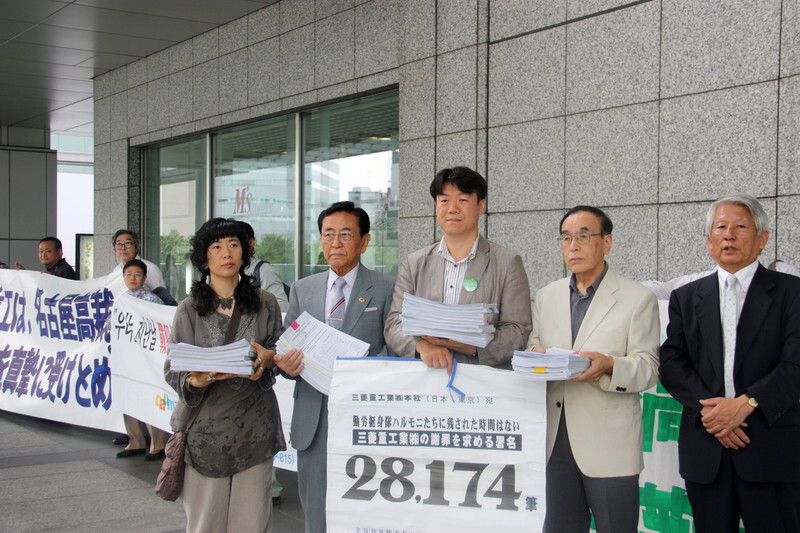
Currently, Yamakawa is battling a heart condition. But when he used to attend the Friday demonstrations, he always kept two pieces of paper on his person. One was his family’s contact information, in case he collapsed on the street. The other was his final words, calling on the president of Mitsubishi Heavy Industry to give the former members of the labor corps an apology and compensation.
Because of his illness, the author has limited mobility. “In order to record the progress of the trials and the activities of the Nagoya support group, I had to study Korea-Japan relations, which wasn’t easy at my age,” he said.
By Jung Dae-ha, Gwangju correspondent
Please direct comments or questions to [english@hani.co.kr]
Editorial・opinion
![[Editorial] Yoon must halt procurement of SM-3 interceptor missiles [Editorial] Yoon must halt procurement of SM-3 interceptor missiles](https://flexible.img.hani.co.kr/flexible/normal/500/300/imgdb/child/2024/0501/17145495551605_1717145495195344.jpg) [Editorial] Yoon must halt procurement of SM-3 interceptor missiles
[Editorial] Yoon must halt procurement of SM-3 interceptor missiles![[Guest essay] Maybe Korea’s rapid population decline is an opportunity, not a crisis [Guest essay] Maybe Korea’s rapid population decline is an opportunity, not a crisis](https://flexible.img.hani.co.kr/flexible/normal/500/300/imgdb/original/2024/0430/9417144634983596.jpg) [Guest essay] Maybe Korea’s rapid population decline is an opportunity, not a crisis
[Guest essay] Maybe Korea’s rapid population decline is an opportunity, not a crisis- [Column] Can Yoon steer diplomacy with Russia, China back on track?
- [Column] Season 2 of special prosecutor probe may be coming to Korea soon
- [Column] Park Geun-hye déjà vu in Yoon Suk-yeol
- [Editorial] New weight of N. Korea’s nuclear threats makes dialogue all the more urgent
- [Guest essay] The real reason Korea’s new right wants to dub Rhee a founding father
- [Column] ‘Choson’: Is it time we start referring to N. Korea in its own terms?
- [Editorial] Japan’s rewriting of history with Korea has gone too far
- [Column] The president’s questionable capacity for dialogue
Most viewed articles
- 1Months and months of overdue wages are pushing migrant workers in Korea into debt
- 2Trump asks why US would defend Korea, hints at hiking Seoul’s defense cost burden
- 3[Editorial] Yoon must halt procurement of SM-3 interceptor missiles
- 4At heart of West’s handwringing over Chinese ‘overcapacity,’ a battle to lead key future industries
- 5[Guest essay] Maybe Korea’s rapid population decline is an opportunity, not a crisis
- 61 in 3 S. Korean security experts support nuclear armament, CSIS finds
- 7Fruitless Yoon-Lee summit inflames partisan tensions in Korea
- 8First meeting between Yoon, Lee in 2 years ends without compromise or agreement
- 9Under conservative chief, Korea’s TRC brands teenage wartime massacre victims as traitors
- 10[Column] Park Geun-hye déjà vu in Yoon Suk-yeol